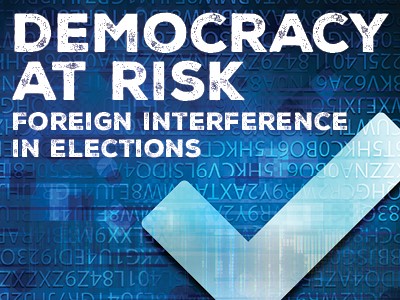CANIS International Conference: Foreign Interference in Elections

Foreign interference poses one of the greatest threats to elections in democratic societies around the globe. Foreign interference activities from state and non-state actors target democratic processes in pursuit of their strategic objectives (i.e., political, economic, and geopolitical). Democracies have struggled to respond to such challenges. China and Russia, for example, have noticeably elevated and expanded interference and influence operations aimed at politicians, businesspeople, academia, the media, and diasporic communities. In addition, non-state actors, most notably from the far-right, have been mobilizing and conducting transnational information operations, eroding trust in democratic institutions, and sponsoring hateful narratives targeting minorities across Western democracies. In the age of digital media and AI assisted communication, foreign interference, disinformation, and attacks on democratic institutions are likely to become ever more sophisticated.
In March 2024, the Canadian Network on Information & Security (CANIS) is hosting an international conference to explore the challenges of foreign international interference in elections. This transdisciplinary conference will bring together researchers, government officials, and practitioners from an array of social science, public policy, engineering, and legal fields to promote collaboration and exchange ideas. The conference will also feature emerging trends in industry, as well as best practices in the information environment from domestic and international actors, and how they could apply to the Canadian context.
This conference will focus on:
- Foreign interference and meddling in electoral processes highlighting regional perspectives from North America (US and Canada), the European Union, and the Indo-Pacific regions.
- State-sponsored activities against democratic processes worldwide, including the roles of Russia, China, and Iran.
- Challenges of foreign interference in elections from non-state actors.
- Identification of best practices to ensure public transparency and maintaining trust in our democratic and electoral systems.
About CANIS
As a multidisciplinary network highlighting the political/military, cognitive/behavioural, technological, and legal/ethical dimensions of the information environment, the Canadian Network on Information and Security (CANIS) examines the impact of the domestic and international information environment on Canadian national defence and security. CANIS also fosters research and network initiatives from emerging scholars to deepen knowledge and understanding of information and security.
About the venue
The Banff Centre is a full-service conference and hotel venue located in the heart of the Canadian Rockies. The unique campus facilities are spread over 43 acres of land on the west side of Tunnel Mountain and just a few blocks from downtown Banff, Alberta.
Please contact CANIS Coordinator Tatiana Oshchepkova if you have questions or need more information: tvoshche@ucalgary.ca.


